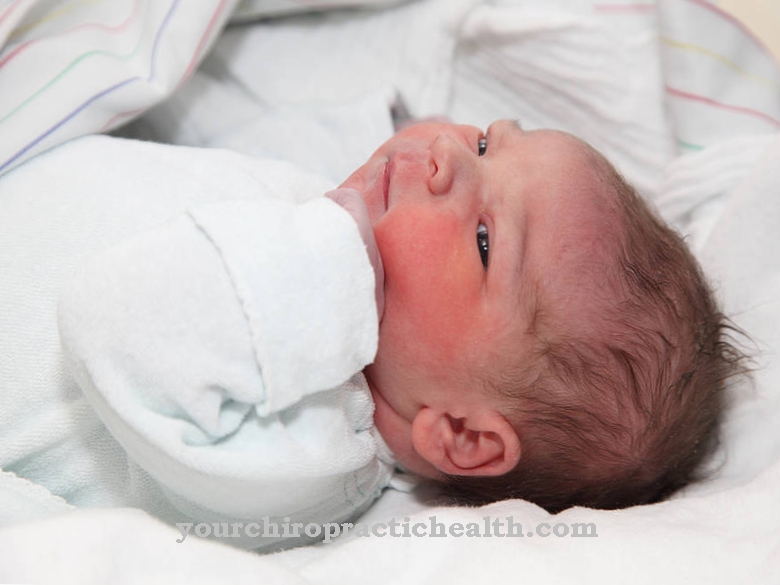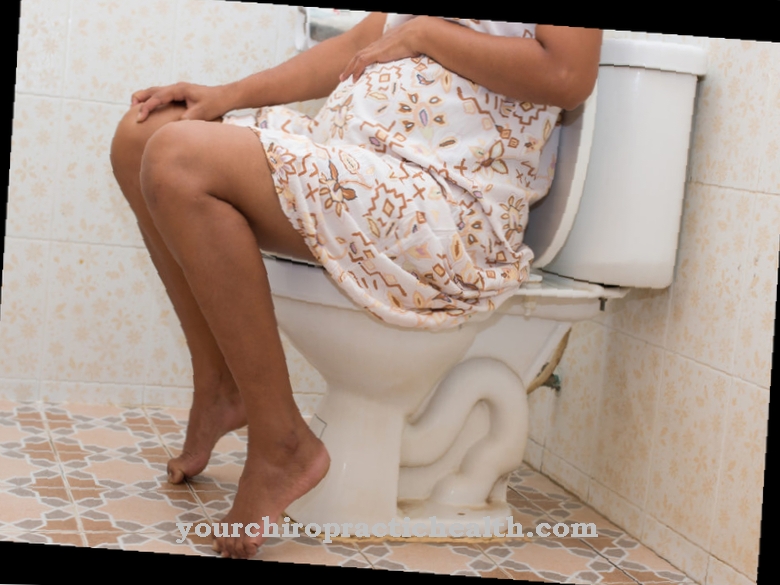As if the nausea during pregnancy weren't enough, many pregnant women also suffer from headaches. Especially in the first three months Headache in pregnancy No rarity. Under normal circumstances you would take pills, but if you are pregnant, you should stay away from medication.
Causes of Headache During Pregnancy
In many cases, the hormonal change is responsible for the headache. But also stress, too little oxygen, weather changes, incorrect posture, tiredness or overexertion and exhaustion can trigger headaches. The interaction of the different factors can of course favor the headache or make it particularly intense.
It is advisable to combat the causes. The headache is just a symptom. But if you want to stay pain-free for longer or take preventive action and recognize and fight the causes, you will also be spared during pregnancy.
While the normal headache does not necessarily have to be fought with tablets and in many cases no visit to the doctor is necessary, if the headache is severe, attention should be paid to other symptoms. In a few cases, headache is the first symptom of preeclampsia.
When it gets worse: migraines
It becomes problematic when it is not an ordinary headache but a migraine. Migraines come on like a seizure and set in from one second to the next. However, it has been observed that women who suffered from migraines hardly had any problems during pregnancy. 70 to 80 percent of migraine sufferers - during pregnancy - are free from annoying headaches. However, migraines can recur after the baby is born.
The problem of migraines is the difficult treatment. It is important that the fetus - as part of the treatment - is not endangered.If acute migraine attacks occur, the pregnant woman should therefore go to a darkened room. Sleeping or compresses for cooling can help. Sometimes, however, gentle massages of the scalp and face are also helpful. In severe cases, acupuncture, lymphatic drainage or various relaxation exercises can also help.
What to do with headaches & migraines during pregnancy?
If headaches or migraines occur during pregnancy, medication is not a recommended alternative. There are numerous tablets that must not be taken - not even in small doses. However, in severe cases - after consulting your doctor - smaller doses of painkillers can be used.
Paracetamol is the best choice for treating migraines or severe headaches during pregnancy. Triptans, on the other hand, are not an alternative in pregnancy. If the woman is currently breastfeeding, ibuprofen is often prescribed. If there are severe migraine attacks, metoprolol can also be prescribed.
It is important that all tablets are only taken after consulting the doctor in charge. That person decides on the one hand which painkillers should be taken and on the other hand how high the dosage should be so that the pregnant woman is helped, but the fetus is in no way harmed.
If nausea is added to the headache, many doctors prescribe dimenhydrinate. Dimenhydrinate can be taken during pregnancy and also during breastfeeding. It is important that the tablets are only taken after consulting a doctor during breastfeeding. The latter also determines the dosage.
Magnesium can also be helpful. Many medical professionals are of the opinion that the additional administration of magnesium can very well prevent migraine attacks. Scientific studies have not yet been able to confirm the effect. Here, too, you should consult with us when taking magnesium.
Since many pregnant women want to avoid medication of any kind, triggering factors must of course be taken into account. The so-called trigger factors that cause migraines should therefore be recognized. Classic trigger factors are irregular food intake, stress, insufficient fluid intake or changes in the sleep-wake cycle.
Endurance sports and regular exercise can also help prevent migraines. Various relaxation methods - such as progressive muscle relaxation - can also help combat migraines or headaches without tablets.
Beware of unusually severe headaches
Headaches only rarely have a serious cause or background. Especially if there have been repeated complaints about headaches or migraines before pregnancy. However, if the pregnant woman suffers from high blood pressure or if protein has been found in the urine, the cause of the headache can sometimes be preeclampsia.
Since this is a serious form of high blood pressure, a doctor should be consulted immediately. Typical symptoms are visual disturbances, a sudden swelling of the feet and pain in the upper abdomen. In the end, the following applies: If severe headaches occur - in connection with other complaints - a doctor should be contacted immediately.
Headache prevention
Relaxation, enough fluids, enough sleep and rest are classic preventive measures so that the headache does not arise at all. As a preventive measure, the pregnant woman should therefore drink two to three liters of water a day, get enough sleep (six to eight hours) and spend enough time in the fresh air.
A balanced and healthy diet is also important. Of course, the pregnant woman should - even if it is difficult - pay attention to her posture and sometimes change her sleeping position if any tension is responsible for the headache.













.jpg)

.jpg)
.jpg)











.jpg)